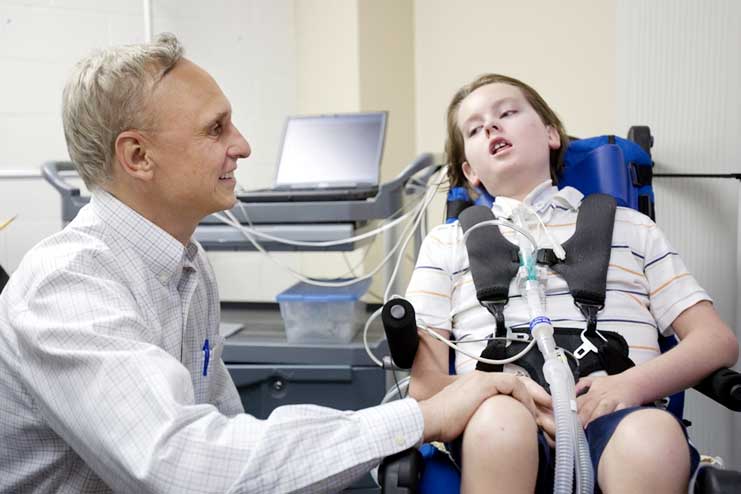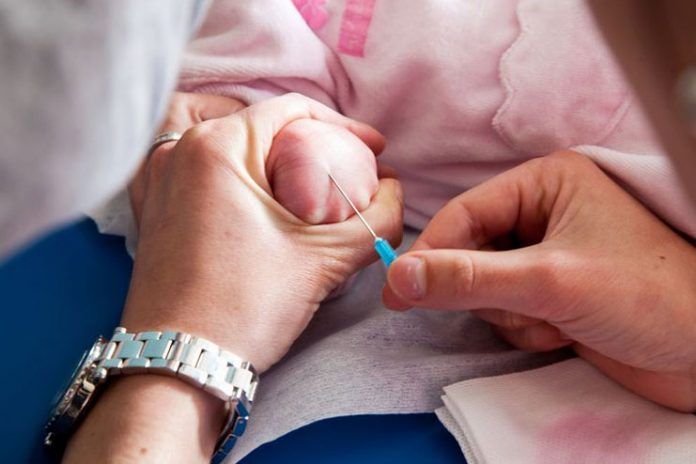Affiliate Disclaimer
Some links in this article are affiliate links. We may earn a small commission if you make a purchase through these links, at no extra cost to you. We only recommend products we find useful to our readersWe all live a life that is unsure of the things that are about to happen the very next moment. But, some of the genetic disorders that some people are born with that affect their entire quality of life. Pompe disease is one such rare disease that affects 1 in every 40,000 births every single year. The Pompe disease treatment is gaining traction with every passing day.
The condition is rare and lacks awareness because of how less people know what the condition actually is. Given that it does impose life threatening impacts, it is important to have a basic idea of what it entails and how one can mitigate through it.
Read: New Evidence Finds Why Women Are More Prone To Autoimmune Diseases Than Men
To help you gain a better knowledge about the treatment options for Pompe Disease, we have sorted out everything there is to know about it.
What is Pompe Disease?

For those who aren’t aware(R) Pompe disease, otherwise known as the Type-II Glycogen Storage disorder is a genetic disorder which is characterized by the persistent build up of the complex sugar, glycogen, inside the cells in the body.
A person suffering from this condition is born with this disorder which is predominantly caused because of the deficiency of the enzyme, acid alfa glucosidase (GAA) which is responsible for the breakdown of the said complex sugar.
When we mention that the condition can be life threatening, it is true. If the condition isn’t diagnosed, the same can end up causing rapid build-up of the sugar molecules inside the cells, tissues, organs and even the muscles, thus causing the breakdown of the areas involved.
Read:Consumption Of Sugary Drinks Can Induce Cancer, New Study Suggests
For the most part, any kind of mutations to the GAA gene is what ends up being the primary cause behind the condition of the Pompe disease.
Types of Pompe Disease

When it comes to the types of Pompe Disease, there are predominantly three types.
- Classic Infantile onset which occurs within a few months of birth
- Non-classic infantile onset which occurs when the child is 1 year old
- Late-onset is when the condition appears at a later stage in the child’s life, even during the teen years
Whenever the condition does highlight, for the most part, it is caused because of the ablation or even any kind of mutation in the GAA gene in the body. Given that it is a genetic disorder, chances are that the child gets it from either of their parents. It is possible that the parents might not be affected with the condition but pass on the same to the child.
The condition can affect anyone, regardless of their gender.
Signs And Symptoms Of Pompe Disease

When it comes around to the symptoms of Pompe disease, knowing them can help with better and earlier diagnosis for prompt treatment as well.
Every single type that we did mention before have their own set of symptoms that one should look out for.
To help you gauge the symptoms, we are going to list them out for you.
| Classic Pompe Disease | Non-classic Pompe Disease | Late-onset Pompe Disease |
| Weak muscles | Delayed motor skills | Weakening in the trunk region in the body |
| Enlarged liver | Weakening muscle strength | Breathing issues |
| Lack of weight gain during growth and developmental stages | Abnormally large heart | Enlarged heart |
| Breathing issues | Breathing issues | Muscle pain |
| Feeding problems | Falling over often | |
| Respiratory tract infection | Lung infections | |
| Issues with hearing | Headaches | |
| Weight loss | ||
| Problem swallowing food | ||
| Irregularity in heart beat | ||
| High level of creatinine kinase | ||
| Difficulty in hearing |
How is Pompe Disease diagnosed?
 When it comes round to the diagnosis, the same is based on how well people read through their symptoms.
When it comes round to the diagnosis, the same is based on how well people read through their symptoms.
If it is a classic Pompe disease, chances are that the doctor would know or get it diagnosed a few months post birth only looking at the symptoms that the babies have been experiencing.
For the most part, if you witness any kind of changes in symptoms in your child, it is best to bring them in to see a doctor and get their vitals checked for any possible signs of the condition.
How does Pompe disease affect the body?

When it comes to how the condition of Pompe disease is affecting your body, the possibilities are grave than what you would experience.
The consistent buildup of the glycogen in the cells in the body does have negative impacts on the same in the long run, especially when it comes to the muscle function and ability.
It is very important that you do see a doctor before it gets out of hand or gets worse. It is very important that you do take care of yourself because the same can end up affecting your overall quality of life, and that too for the worse.
The glycogen buildup in the cells direct affects the muscles, making them break down in the long haul. If you have been struggling to keep things in place for yourself, it is best suggested that you get the condition checked out by someone professional.
It has grave impacts on one’s heart function too as heart itself is a muscular organ. This makes it hard for the heart to beat at a regular rhythm thus causing further issues with their overall well being.
You are most likely going to experience respiratory issues as well, which is why getting the necessary support for this condition is the key. You need to ensure that you surround yourself with qualified doctors who can help you get the best Pompe disease treatment to help you lead a quality life.
Read: Prolonged Exposure To Antioxidant Proteins Might Cause Fatty Liver Disease, New Study Suggests
How to treat Pompe Disease?
 The Pompe disease treatment isn’t that tough as you would think it would be.
The Pompe disease treatment isn’t that tough as you would think it would be.
Given that the deficiency of the GAA enzyme is what ends up causing the build-up of the glycogen, it is important that you get a proper replacement for the same for better recovery.
Early treatment options for Pompe disease can act out as a boon for the babies who are suffering from this condition.
It is very important that you do focus on first getting a proper diagnosis of the condition and then opting for the medication that can help keep your condition in check.
There are two primary medications that can help in the artificial production of the protein that is missing in the body. These include:
- Myozyme, which is used in the babies and the children
- Lumizyme, which is used in the adults
Both of these medications are administered intravenously.
How to take care of yourself?
 It is true that being affected by Pompe disease, you wouldn’t be able to lead a completely normal life. It is going to have grave impacts on some of the major systems in your body.
It is true that being affected by Pompe disease, you wouldn’t be able to lead a completely normal life. It is going to have grave impacts on some of the major systems in your body.
Taking care of yourself is more important than the treatment options for Pompe disease.
It is important that you find constructive ways to overcome the challenges that you are faced with along the way.
Support groups are quite amazing for this and can help you acknowledge that there are several other people suffering from the same condition as you, even if it is quite rare.
Additionally, if you have trouble breathing, keep your inhaler handy. If you have been having issues swallowing the food, try and keep the food liquid and easy to swallow around.
It is necessary that you bring forth the necessary amount of changes in your life that is needed for better recovery and to lead a quality life like no other.
Frequently asked questions
 When it comes to the FAQs, there are often a number of questions that the patients have for their doctors.
When it comes to the FAQs, there are often a number of questions that the patients have for their doctors.
Some of the most common ones include:
Is there a cure for Pompe disease?
When it comes to answering whether Pompe disease can be cured permanently, the answer is no, still. Yes, the medications do help keep your condition in regulation but that doesn’t guarantee a permanent cure. We are still not sure whether the genetic therapy can be a possible permanent cure for this or not.
Is Pompe disease fatal?
Yes, it can get fatal and can affect the primary organs in the body if one doesn’t get diagnosed on time. This is the reason why it is important that you go see a doctor if you find the possible symptoms of Pompe disease in your child.
How long can one live with Pompe disease?
This is yet another one of the questions that doesn’t have a standard answer to it. Everyone’s body is different and everyone’s body reacts differently. If the condition is diagnosed on time and if the medications are administered on time, chances are that you can easily lead a life that you are meant to live.
Pompe disease treatment is still undergoing a lot of research to find better and permanent solution for it. If you are sensing any kind of changes or alterations in your child’s health, it is important that you don’t leave it be. Instead, rush them to a doctor and get them checked for any possible sign of this condition.















